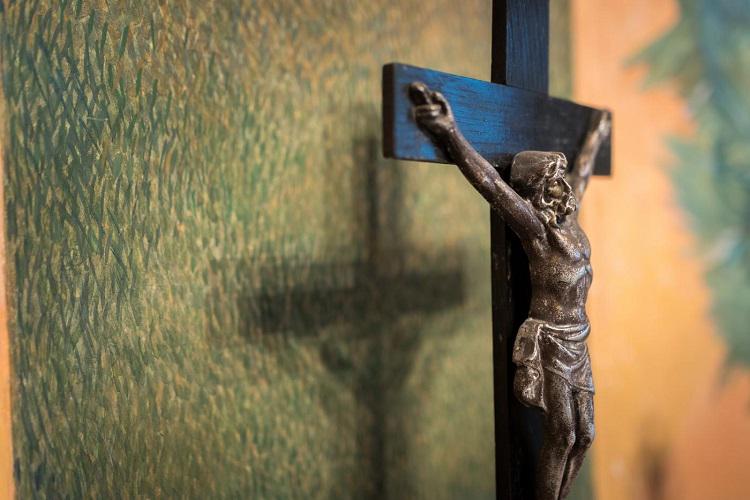Today's churches, compared to those of two thousand years ago, have become more "advanced" and affluent. However, many people have observed that our churches are ailing and facing numerous issues.
Rev. Li Tao (pseudonym), who has extensively studied and contemplated the churches of the apostolic age, believeds that the early church was genuinely healthy and could offer insights into addressing the problems of today's churches.
Li declared that the early church had numerous distinctive qualities, with one crucial aspect being the widespread commitment among believers to live selflessly and pursue lives of self-sacrifice.
During the apostolic age, many individuals, upon believing in the Lord Jesus, sold their possessions and goods, which have been recorded several times in the Acts. Li explained, "It's not about advocating for every Christian to sell off everything they own and dedicate it to the church now. However, what we need to understand is that such practice was prevalent within the churches at that time."
People in that era, after following Jesus, were able to forsake everything, dedicating all they had. Pastor Li shared that there were at least three reasons for this willingness.
Firstly, he said that the selfless dedication of the early Christians stemmed from their initial commitment to follow.
When Jesus began his ministry, he personally called and chose twelve disciples, who abandoned everything to follow him. Besides them, the first group of believers baptized during Pentecost did similarly.
During the calling of disciples, Jesus said to those who wanted to follow him, "Whoever comes to me and does not hate father and mother, wife and children, brothers and sisters, yes, and even life itself, cannot be my disciple."
The Lord's original disciples weren't the only ones who had to adhere to such strict rules. Even today, if we want to be true disciples of the Lord, we still need to have selfless hearts. "This doesn't mean we should go crazy and sell houses, cars, and everything we own. Rather, we must recognize that there's a choice between all we possess and the Lord Jesus. Are we willing to forsake everything for the Lord?" Li asked.
Li continued, "The disciples' willingness to forsake everything also stemmed from the wonderful example of the Lord's self-sacrifice for them."
At the first Pentecost following the Lord's crucifixion, three thousand people repented and believed in the Lord, followed by another group of five thousand. Many among them might have seen Jesus; some may have even rejected or attacked Him; perhaps even among those who, over fifty days earlier, had demanded Pilate release Barabbas instead of Jesus. Yet, fifty days later, they believed in the Lord. It was because they had witnessed firsthand Jesus Christ's voluntary sacrifice for all humanity, witnessing His bleeding and sacrifice on the cross.
Li gave two examples of voluntary dedication: Isaac Watts from England and John Sung from China.
Isaac Watts, known as the "Father of English Hymnody" in 17th-century England, penned many hymns still widely sung among Christians, with the most famous being "Joy to the World."
"Reading his poem 'When I Survey the Wondrous Cross,' we feel as though Isaac Watts has seen the cross of Jesus with his own eyes. Of course, we know Isaac Watts couldn't have seen Jesus's cross, but he indeed had a profound understanding of the love displayed by Jesus through the cross, hence creating such a deeply moving song," he said.
Dr. John Sung was one of the great figures in Chinese church history. When returning to China after completing his studies abroad, he threw his scholarly awards into the Pacific Ocean. He once said, "These things are of no use to me."
At the age of 27, after attending a gathering where the pastor talked about Jesus and His crucifixion, Sung saw in prayer the vivid image of Jesus’ passion and in extreme agony on the cross. The suffering of Jesus deeply pierced his heart, and from then on, he was willing to dedicate himself entirely to the Lord.
Li concluded, "Another crucial reason why believers in the early church were willing to sacrifice themselves was their hopeful anticipation of the kingdom of God."
In fact, not only the apostles and disciples of the early church but even the ancestors in faith held such a hopeful anticipation. The apostles also had great hopes for the kingdom of God. For instance, the Apostle Paul said, "I have fought the good fight; I have finished the race; I have kept the faith. Now there is in store for me the crown of righteousness." (2 Timothy 4: 7-8)
Li summarized, "We should not only understand Jesus well and emulate His example but also hold firm hope for the glorious kingdom of God. Only then can we experience Jesus in our own life; only then can we die to ourselves and live for Christ.
- Translated Abigail Wu












